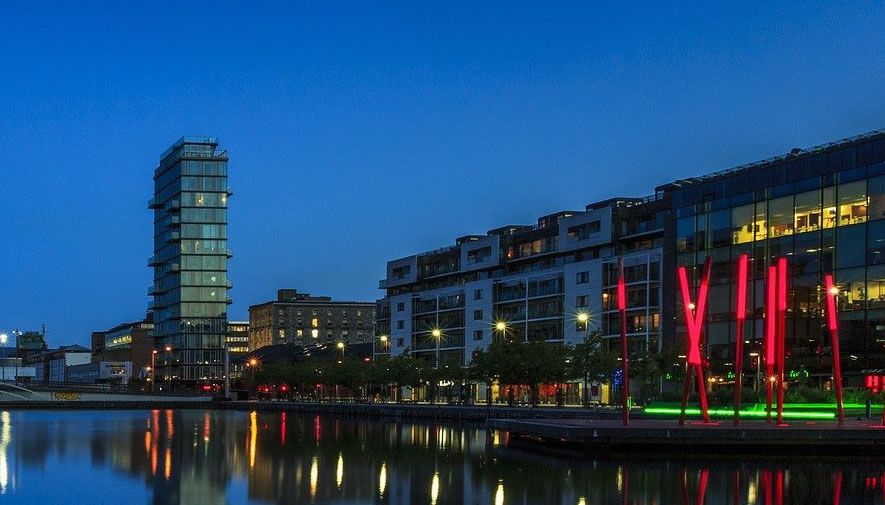Location, location, location. It’s all about location when it comes to business.
Present day Baggot Street is a prestigious commercial and residential area. It is nestled between St. Stephen’s Greeen and Ballsbridge and some of the worlds largest corporations have their headquarters within a kilometre. Facebook, Google, Linkedin and Twitter’s Head Office’s are in the nearby docklands. Baggot Street and the surrounding areas are alive with the energy of newly established startups and entrepreneurs. Thousands of construction workers are working on a number of new office blocks in or around Baggot Street and , showing the demand for space in this small area.
In early May, Twitter Founder and CEO, Jack Dorsey, announced that employees, would be able to work remotely, even after the social distancing guidelines have being lifted. Other tech giants such as Facebook, have followed similar paths. Mark Zuckerberg announced that 50% of Facebook’s staff could be working remotely in the next 5 to 10 years. This is not the case, only for large organisations, but also for small and medium businesses also.
Lots of new businesses think that in order to give their new business a great corporate image, they need to blow a lot of cash by leasing fancy offices in the best part of town. But this doesn’t have to be the case. When you get a virtual office in Dublin, you can get the professional image your new business needs without having to rent expensive office space. You can relax knowing that you don’t need to hire a full time receptionist, buying office equipment, and get a separate phone line either, because a virtual office can do all of this and much more.
Having a virtual office in Baggot Street allows you to have a business presence in one of the most prestigious locations in Dublin, without having to pay huge amounts of rent for a physical office and all the costs associated with office rental, rates, utilities, staff, parking etc. With a Baggot Street virtual office you will have a prestigious business address for your business, where mail can be received in your name and your company name. You will have a dedicated phone number in which your calls will be answered professionally by our receptionist in your company name. With your Baggot Street virtual office you will also have access to meeting room facilities, which you can use to meet your clients.
Having a Baggot Street address, it will give your company a prestigious look both online and offline.
With commercial rents in Dublin near all time highs and financial pressures on business along with recession threats of Covid, companies are seeking smaller, more flexible and cheaper office space. In Dublin, the pressures of the residential property market, commuting and city congestion along with the changing balance between work and home life will reshape Dublin in the coming years. As flexible workspace is embraced, more and more people working from home and choosing flexibility, the future of the office is virtual, flexible and remote.
Now during the Covid 19 crisis, virtual office services, are now more in demand than ever. With working from home becoming more of an option and entrepreneurs and freelancers becoming less dependent on using serviced office services such as Regus and co-working space such as WeWork, there is a rapid opening for virtual office solutions to assist people working from home and those working outside Dublin and even outside Ireland, wanting to reduce their office overheads and still have a prestigious Dublin 4 office address with all the backup support a business requires.
Currently the main advantage to a virtual office in Baggot Street, is you don’t need to be in a crowded or shared office space. With a virtual office you are reducing your exposure to Covid and to those around you. As mentioned by the WHO this crisis will be with us long into 2021 and businesses need to make planning for such measures going into 2021 and 2022.
By 2023 most companies will be using flexible workspace, remote working, virtual offices and as a result, workspace will be reduced by half. If you can take away half the office space requirements in Dublin, what could you do with that space? What would it do to the cost of housing? How would it change transportation and environmental issues?
